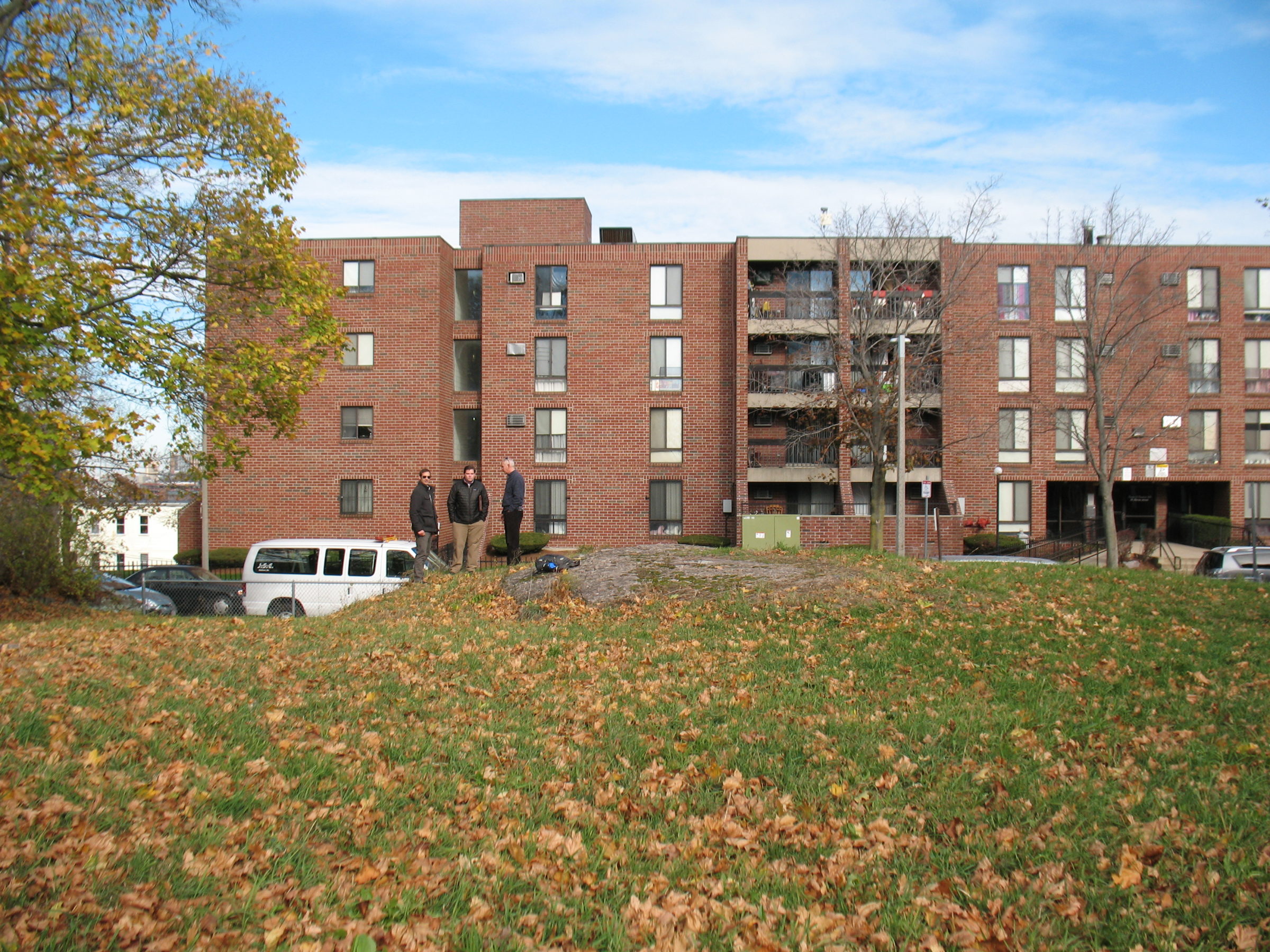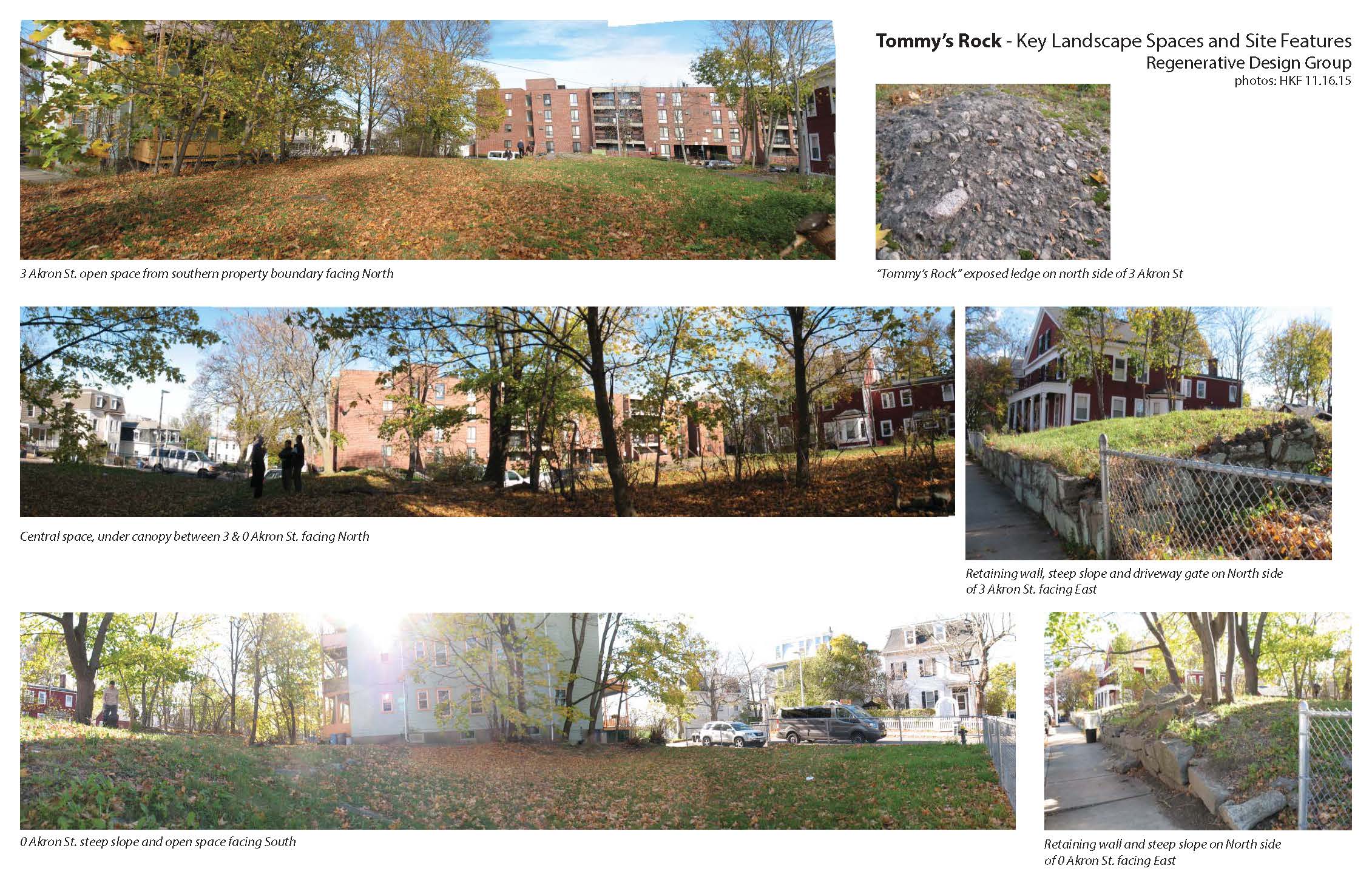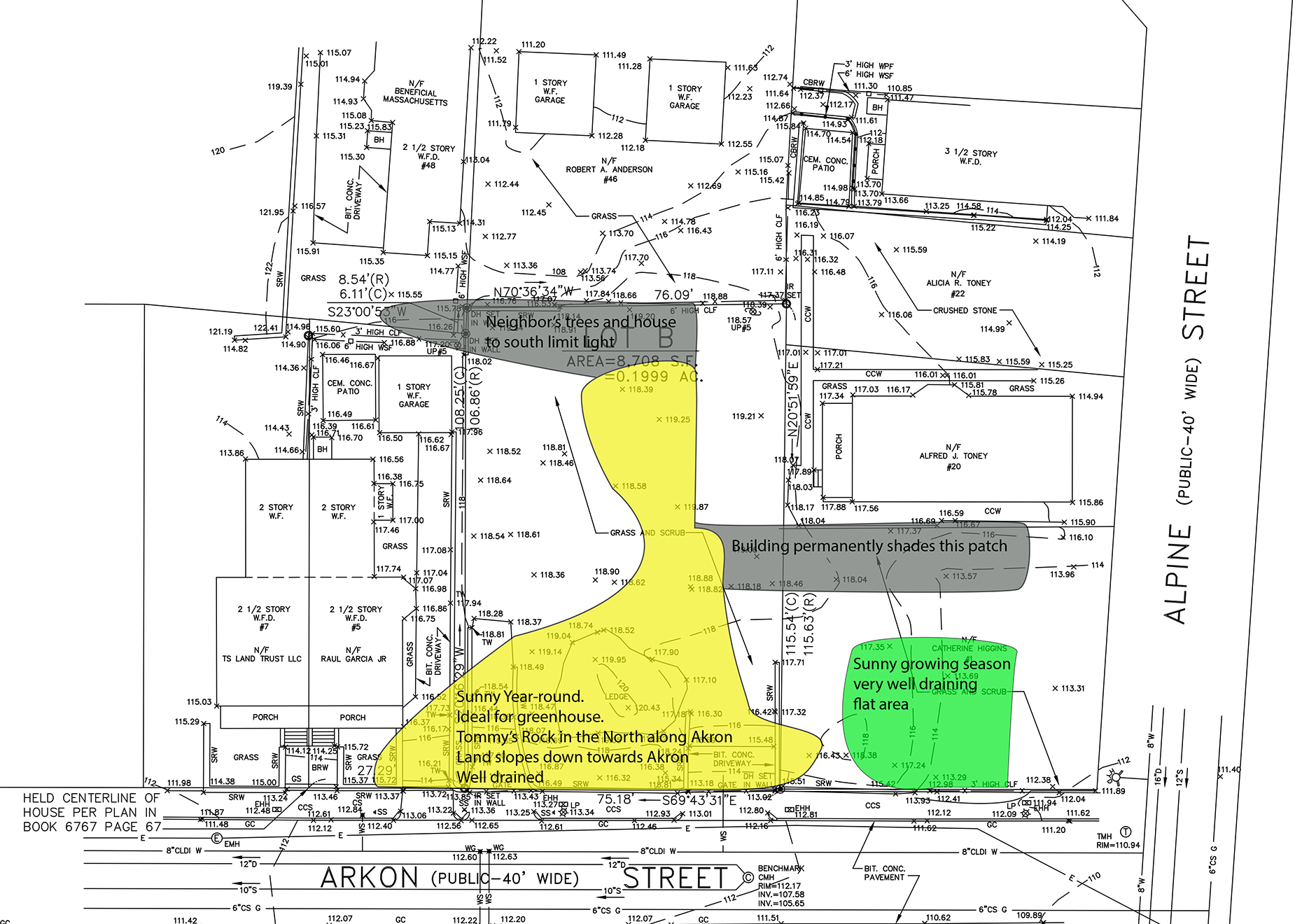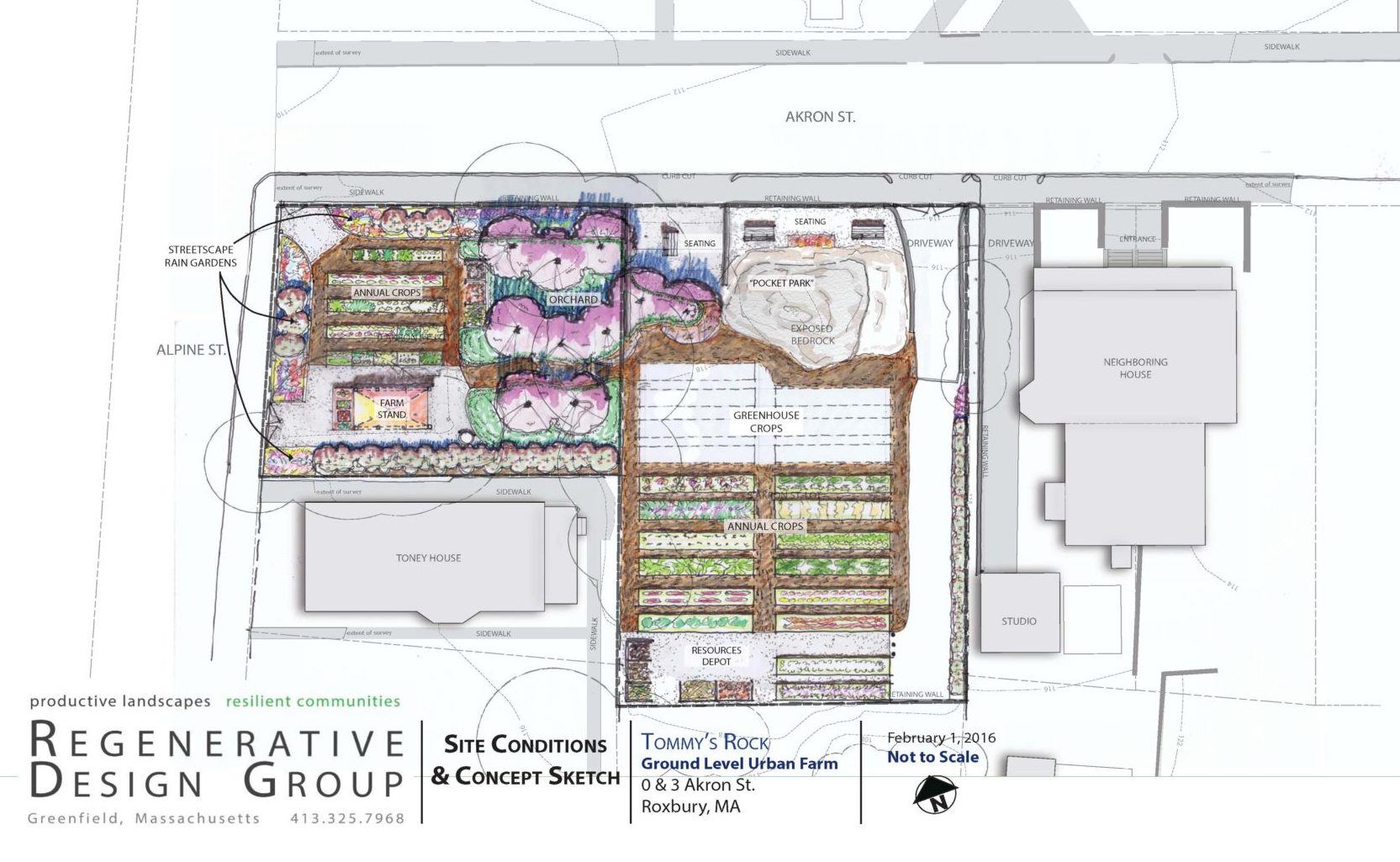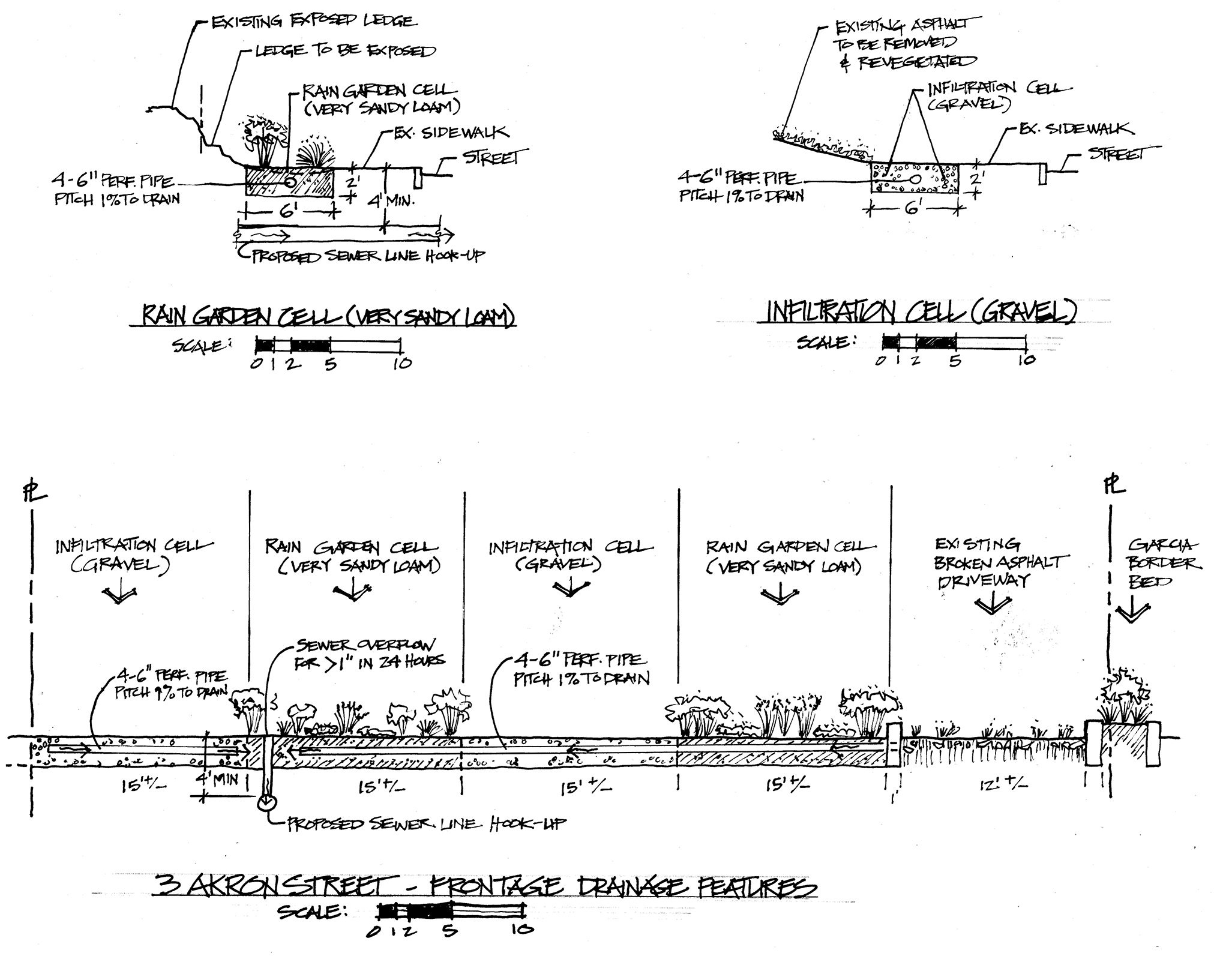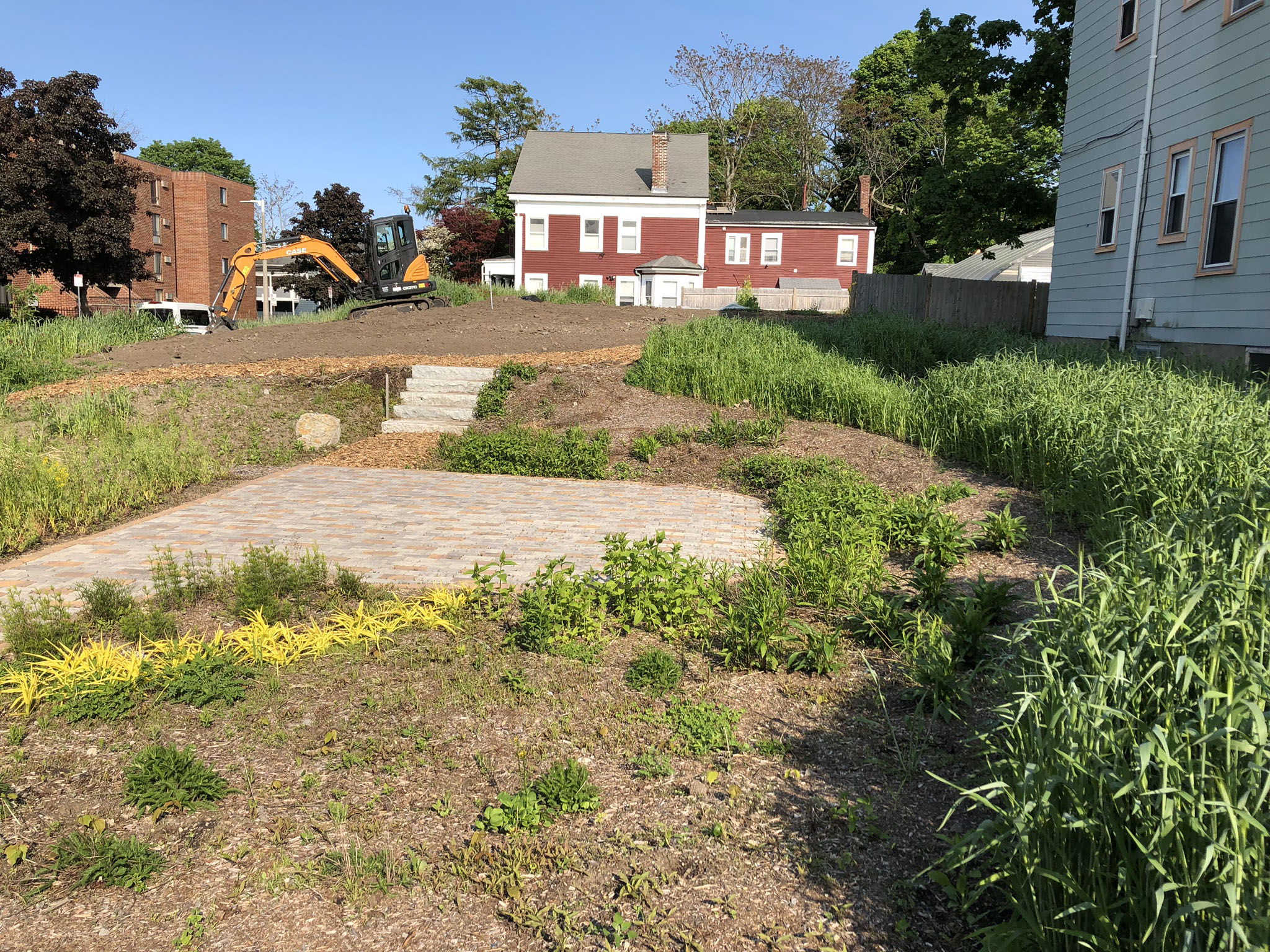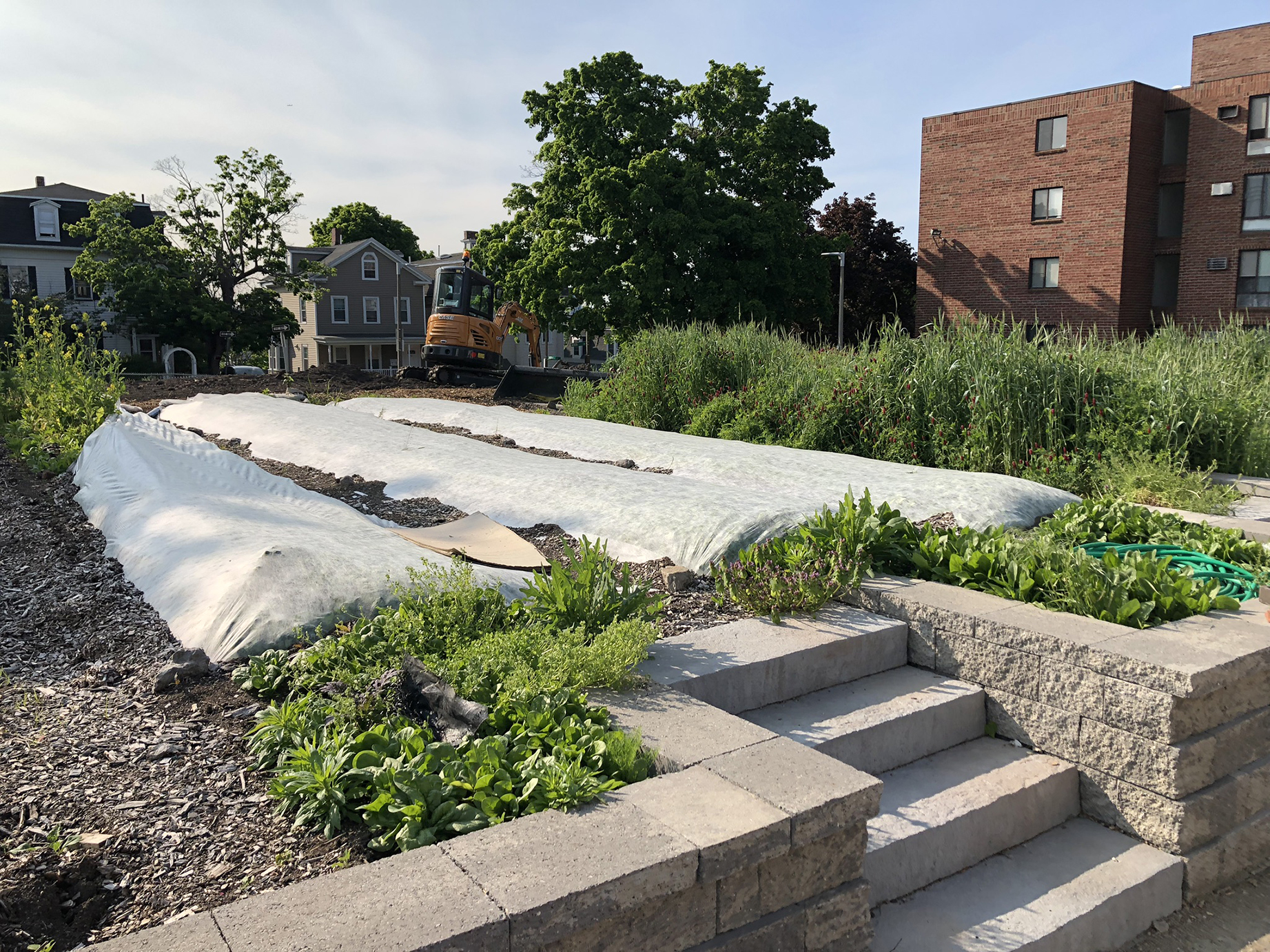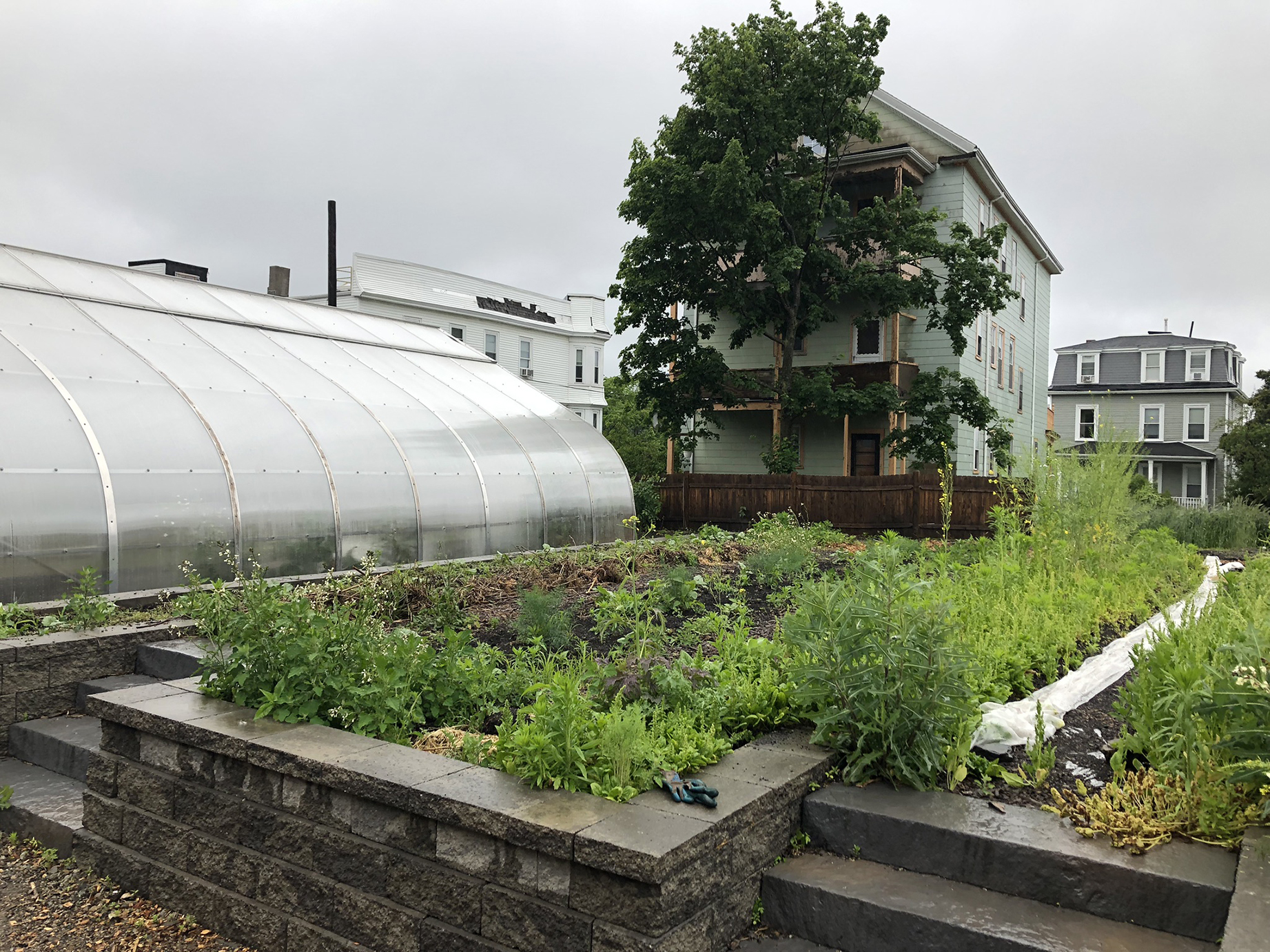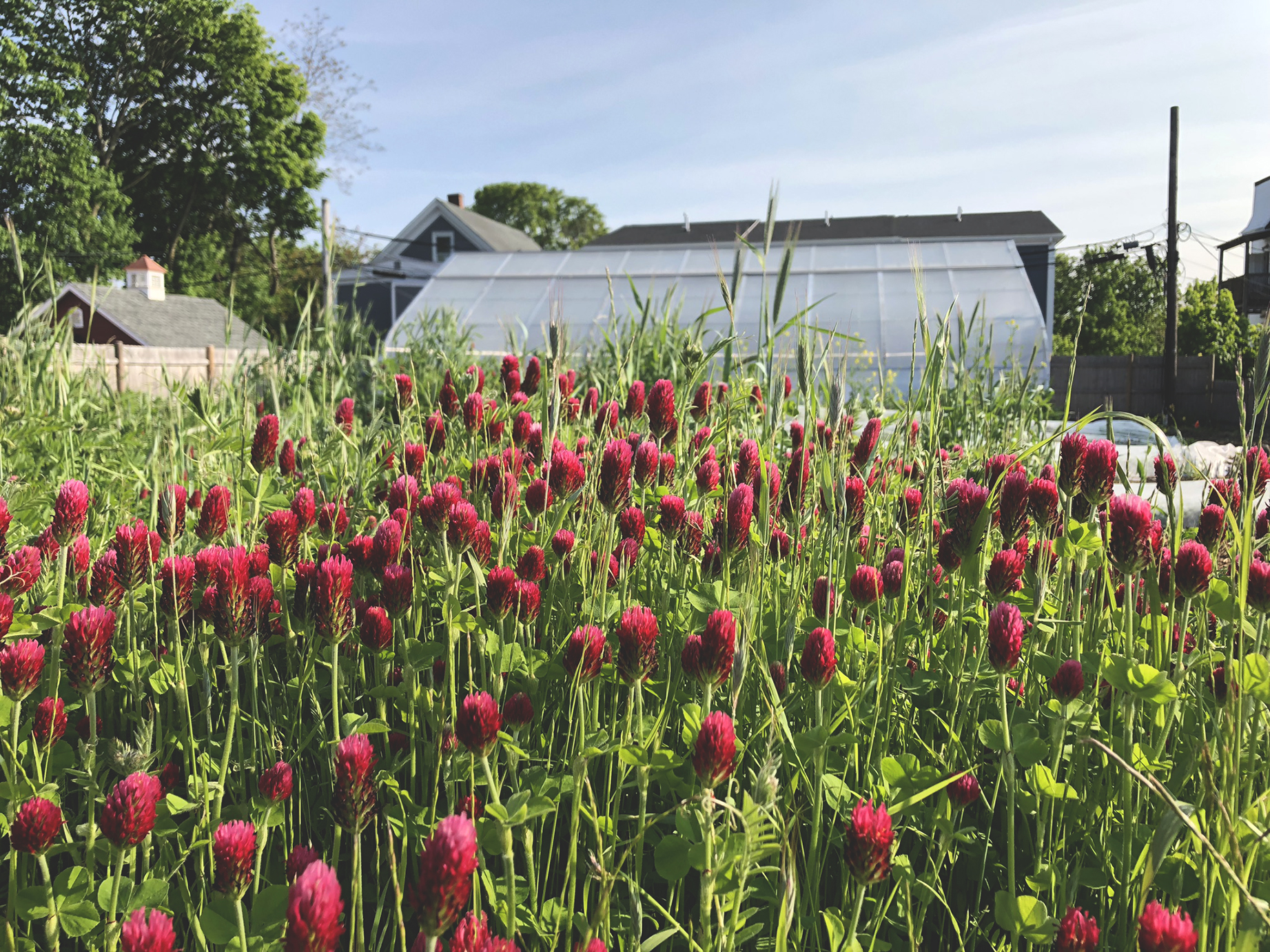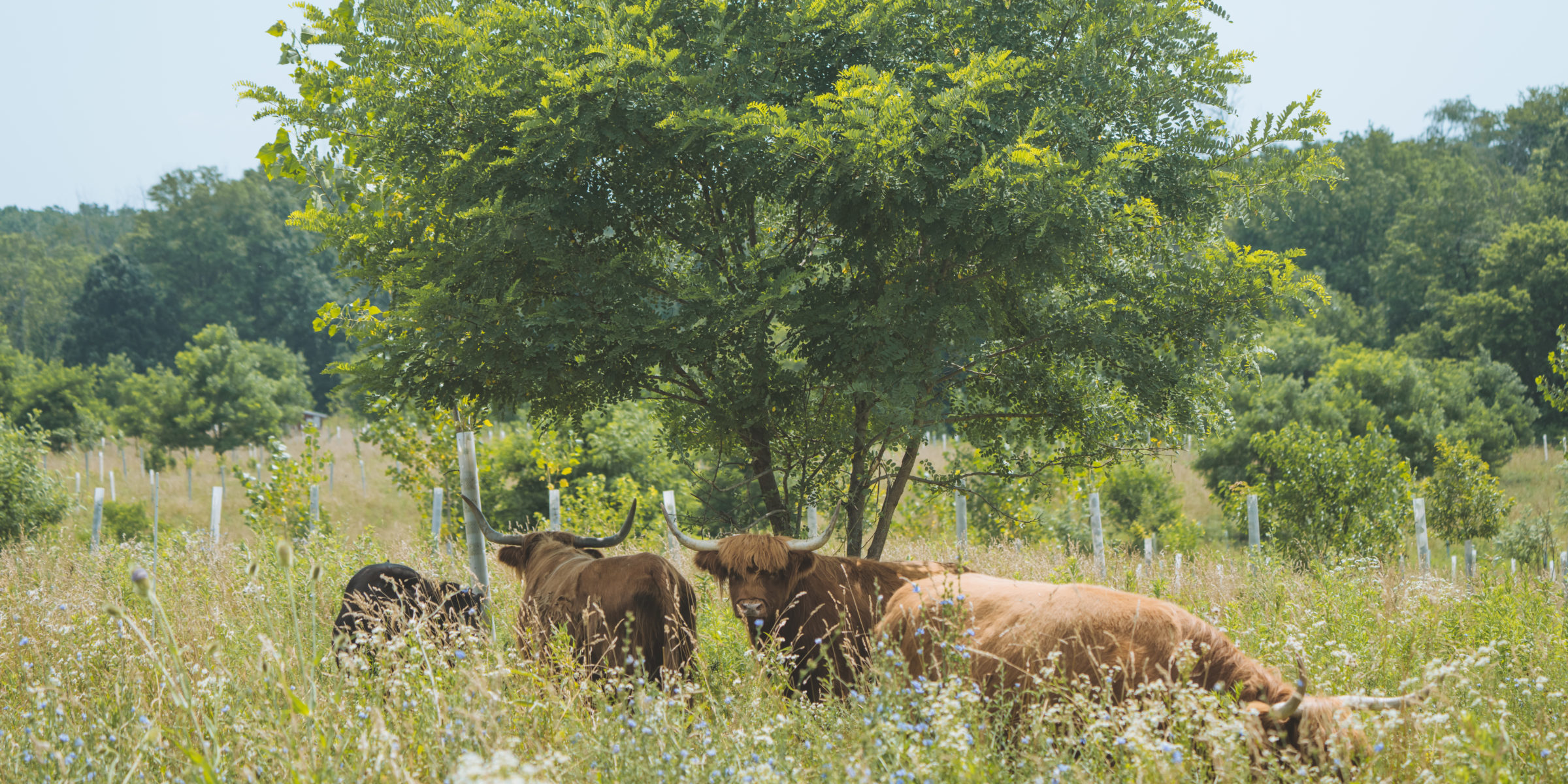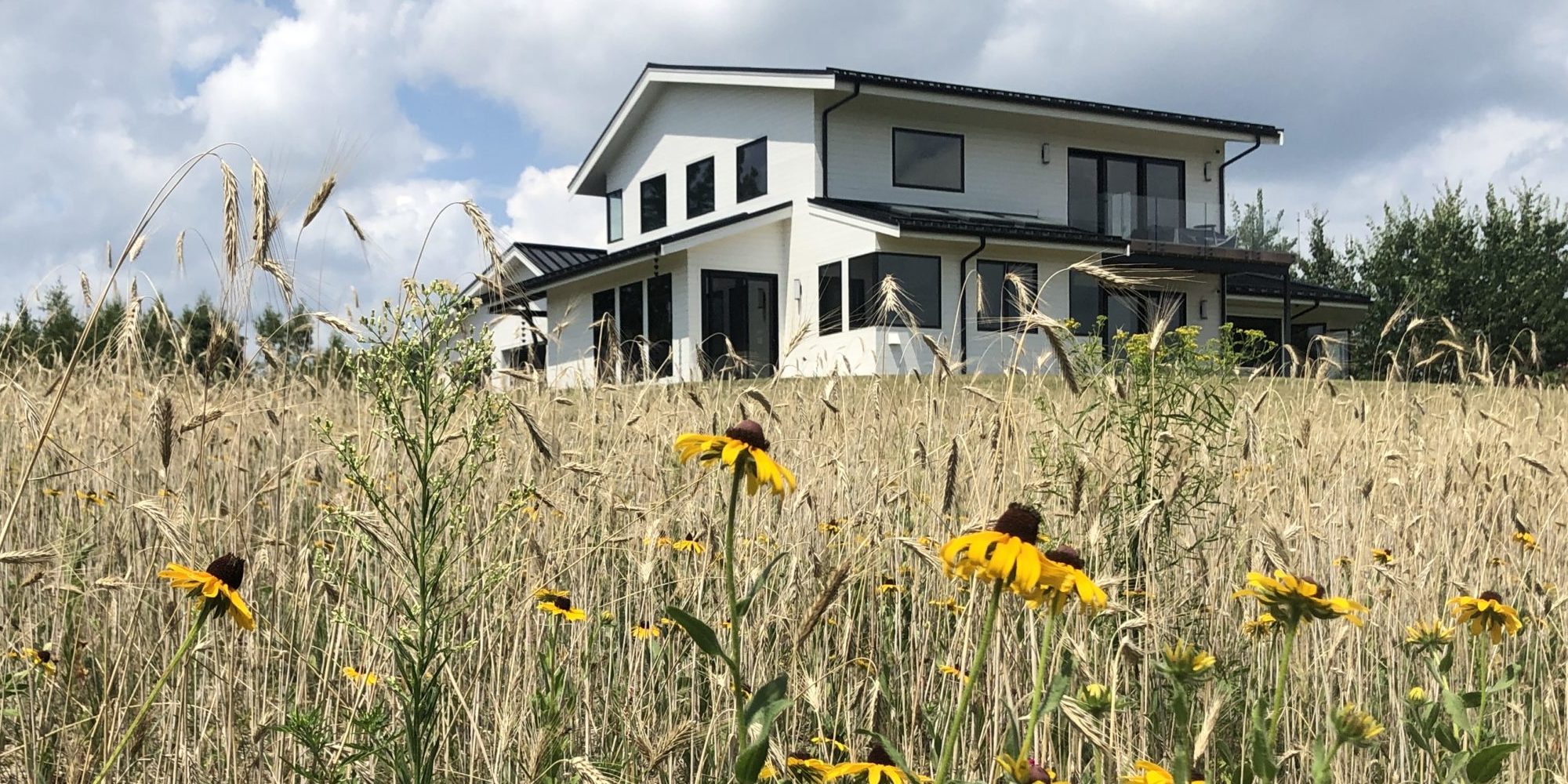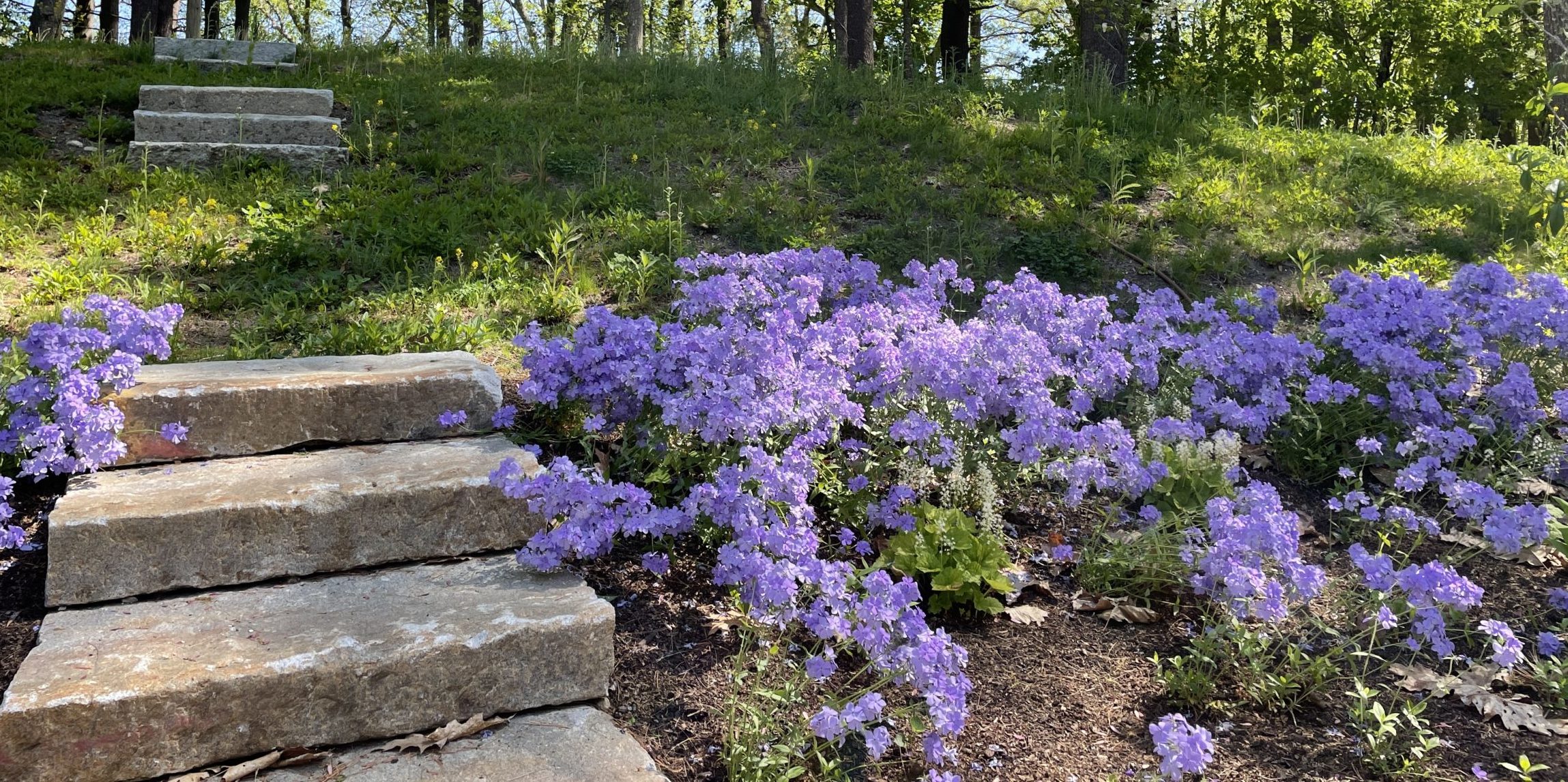The design for this inner-city site envisions a productive urban farm and includes solutions for exposed bedrock, potential soil contamination, and steep slopes.
Tommy’s Rock Urban Farm | Dorchester, MA
In 2015, the Trust for Public Land invited RDG to design a ground-level urban farm in Dorchester as part of their ongoing work to transform vacant lots and increase land access for urban farmers. This collaborative project also included Dudley Neighbors, Inc. and the Urban Farming Institute.
The overall goal for this project was to create a commercial farm with local distribution, education, and neighborhood involvement. The design includes a greenhouse, an annual production area, and a community gardening space on two adjacent vacant lots. The designs have been generated through a public participatory design process with a neighborhood association and community members.
The vacant lots in Dorchester posed several challenges that required innovative solutions. Access for farm vehicles and visitor traffic was carefully considered in this high-density urban neighborhood. Extensive soil analyses were conducted to investigate soil contamination that might affect crop quality. Exposed bedrock and significant grade changes created challenges for stormwater infiltration, soil stability, and universal access. RDG’s solutions included integrating above-ground rainwater capture, utilizing living slope stabilization methods, and the careful design of paths and walkways.
After years of permitting delays, Tommy’s Rock is up and running. In 2020, the farm officially became part of the Boston Farms Community Land Trust.
Key Features
- Four-season greenhouse
- Hedgerows for screening, wildlife habitat, and production
- Annual and perennial production space
- Integration of exposed bedrock into community space
- Parking for farm vehicles and visitors
- Soil barriers to contain contamination
- Regenerative soil practices in non-contaminated areas
Services Provided
- Coordination between multiple organizations and stakeholders
- Public workshops and community meetings
- Site analyses
- Zoning and permitting
- Detailed planting plans
- Construction documents
- Construction oversight
As the momentum around greening cities, increasing health outcomes, and developing more sustainable solutions for urban economic development, urban farming is quickly emerging into a viable industry solution. This emerging industry can help to promote and support innovative approaches that address economic disparity, particularly in lower income neighborhoods.

